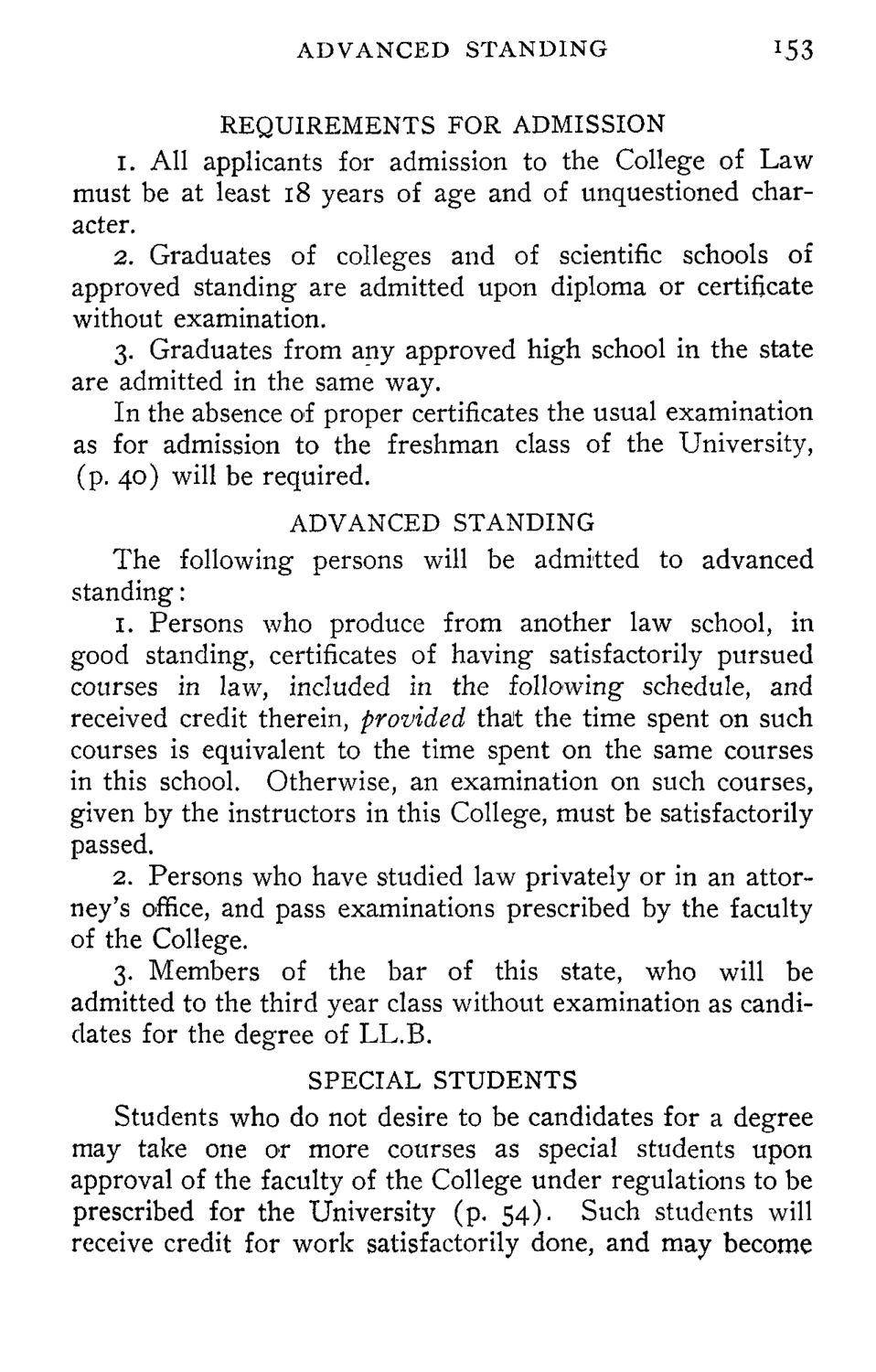| |
| |
Caption: Course Catalog - 1899-1900
This is a reduced-resolution page image for fast online browsing.

EXTRACTED TEXT FROM PAGE:
ADVANCED STANDING 153 REQUIREMENTS FOR ADMISSION 1. All applicants for admission to the College of Law must be at least 18 years of age and of unquestioned character. 2. Graduates of colleges and of scientific schools of approved standing are admitted upon diploma or certificate without examination. 3. Graduates from any approved high school in the state are admitted in the same way. In the absence of proper certificates the usual examination as for admission to the freshman class of the University, (p. 40) will be required. ADVANCED STANDING The following persons will be admitted to advanced standing: 1. Persons who produce from another law school, in good standing, certificates of having satisfactorily pursued courses in law, included in the following schedule, and received credit therein, provided that the time spent on such courses is equivalent to the time spent on the same courses in this school. Otherwise, an examination on such courses, given by the instructors in this College, must be satisfactorily passed. 2. Persons who have studied law privately or in an attorney's office, and pass examinations prescribed by the faculty of the College. 3. Members of the bar of this state, who will be admitted to the third year class without examination as candidates for the degree of LL.B. SPECIAL STUDENTS Students who do not desire to be candidates for a degree may take one or more courses as special students upon approval of the faculty of the College under regulations to be prescribed for the University (p. 54). Such students will receive credit for work satisfactorily done, and may become
| |